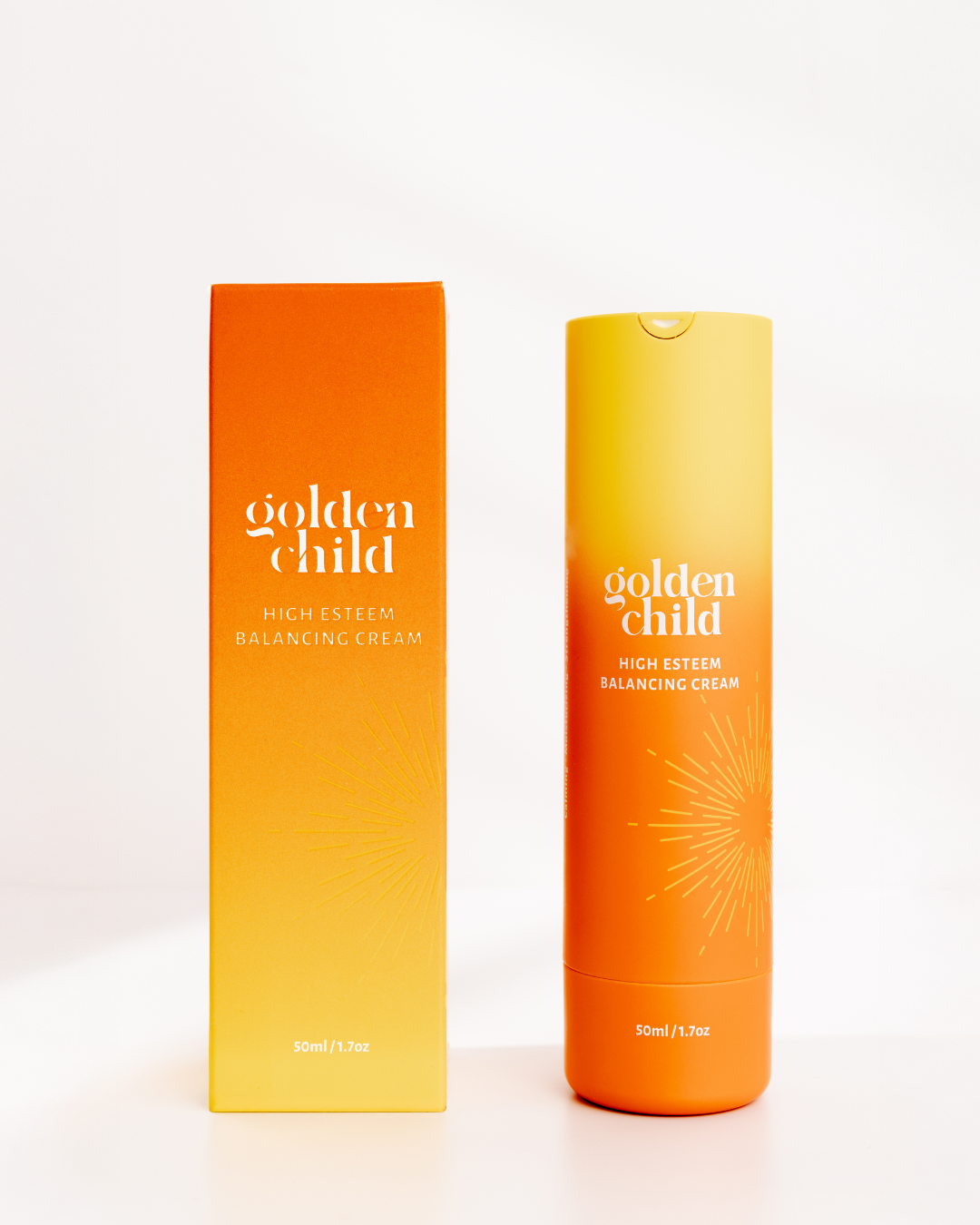Probiotic Skincare: Can Good Bacteria Really Improve Your Skin?

Yes, probiotic skincare can benefit your skin, especially if you're dealing with inflammation, sensitivity, or acne. Probiotics help balance your skin’s microbiome, strengthen the skin barrier, and may reduce redness and breakouts when used consistently.
Bacteria on Your Skin, Friend or Foe?
For years, we’ve been told to cleanse, scrub, and sanitize our skin into perfection. But what if adding bacteria, specifically, good bacteria was the key to a calmer, healthier complexion?
That’s the promise of probiotic skincare, and it’s gaining traction as a game-changer for acne, sensitivity, and even premature aging. At Golden Child Skin, where we believe in gentle yet powerful ingredients, we’re digging into whether skincare with probiotics actually delivers and how to choose the best products if you’re ready to try this trend with purpose.
What Is Probiotic Skincare?
Probiotic skincare includes topical products formulated with live or lysed (non-living) bacteria or bacterial extracts. These ingredients aim to balance the skin microbiome, the invisible layer of bacteria, fungi, and microbes that protect your skin and influence everything from hydration to inflammation.
There are three types of “biotics” often found in skincare:
- Probiotics – Live bacteria (rare in products due to stability concerns)
- Prebiotics – Ingredients that feed good bacteria (like inulin or oat extract)
- Postbiotics – Fermentation byproducts (like lactic acid) that support skin health
How Probiotics Work on the Skin
1. They Support the Skin Barrier
Your skin barrier is your first line of defense. Probiotics help maintain an optimal pH and microbial balance, reducing irritation and water loss.
2. They Calm Inflammation
Probiotics can signal the skin to produce anti-inflammatory molecules, which may help reduce redness, flare-ups, and rosacea.
3. They May Help with Acne
By balancing bacteria like Cutibacterium acnes (formerly P. acnes), probiotics reduce overgrowth and create a less hospitable environment for acne-causing bacteria.

4. They Enhance Skin Resilience
Regular use may boost immunity, helping your skin better handle external stressors like pollution or UV exposure.
Related products:
Best Probiotic Ingredients to Look For
|
Ingredient |
Type |
What It Does |
|
Lactobacillus Ferment |
Postbiotic |
Soothes inflammation and strengthens the skin barrier |
|
Bifida Ferment Lysate |
Probiotic derivative |
Often found in serums; reduces sensitivity |
|
Inulin |
Prebiotic |
Nourishes beneficial skin bacteria |
|
Saccharomyces Ferment |
Postbiotic |
Antioxidant-rich and calming |
Note: Most skincare products contain postbiotics or bacterial extracts rather than live probiotics due to stability and shelf-life issues.
Is Probiotic Skincare Good for Acne-Prone Skin?
Yes, especially when paired with a minimalist, non-stripping routine. Many acne sufferers experience an imbalanced microbiome, which leads to overgrowth of bad bacteria and chronic inflammation.
- Probiotics reduce triggers without the harshness of benzoyl peroxide or strong acids.
- They can be layered with acne treatments to help reduce side effects like dryness or redness.
Read more: Best Skincare Routine for College Students with Acne-Prone Skin
Who Should Use Probiotic Skincare?
Great for:
- Sensitive skin
- Redness-prone skin
- Dry or dehydrated skin
- Mild to moderate acne
- Compromised skin barrier (post-exfoliation, overuse of actives)
Avoid if:
- You have allergies to fermented ingredients
- You’re using it as a sole treatment for cystic acne (pair with medical advice)
How to Add Probiotics to Your Skincare Routine
-
Start with a probiotic-rich serum or moisturizer
These products tend to be most concentrated and bioavailable. -
Use daily for at least 4–6 weeks
Microbiome support isn’t instant, it’s about restoring long-term balance. -
Keep the rest of your routine gentle
Avoid over-cleansing or using too many actives that could disrupt the microbiome again. -
Look for barrier-supporting companions
Ingredients like ceramides, hyaluronic acid, and niacinamide pair beautifully with probiotics.
Read more:
Final Thoughts: Is Probiotic Skincare Worth It?
If your skin feels easily irritated, unbalanced, or just “off,” probiotic skincare could be a smart addition to your routine. While it’s not a miracle fix, it offers a science-backed, barrier-friendly way to promote healthier, calmer skin especially when your microbiome has been disrupted by stress, over-cleansing, or environmental factors.
Golden Child products believe skincare should support your skin's natural intelligence not fight it. That’s why we love formulas that nurture, balance, and empower your skin to thrive on its own terms.











